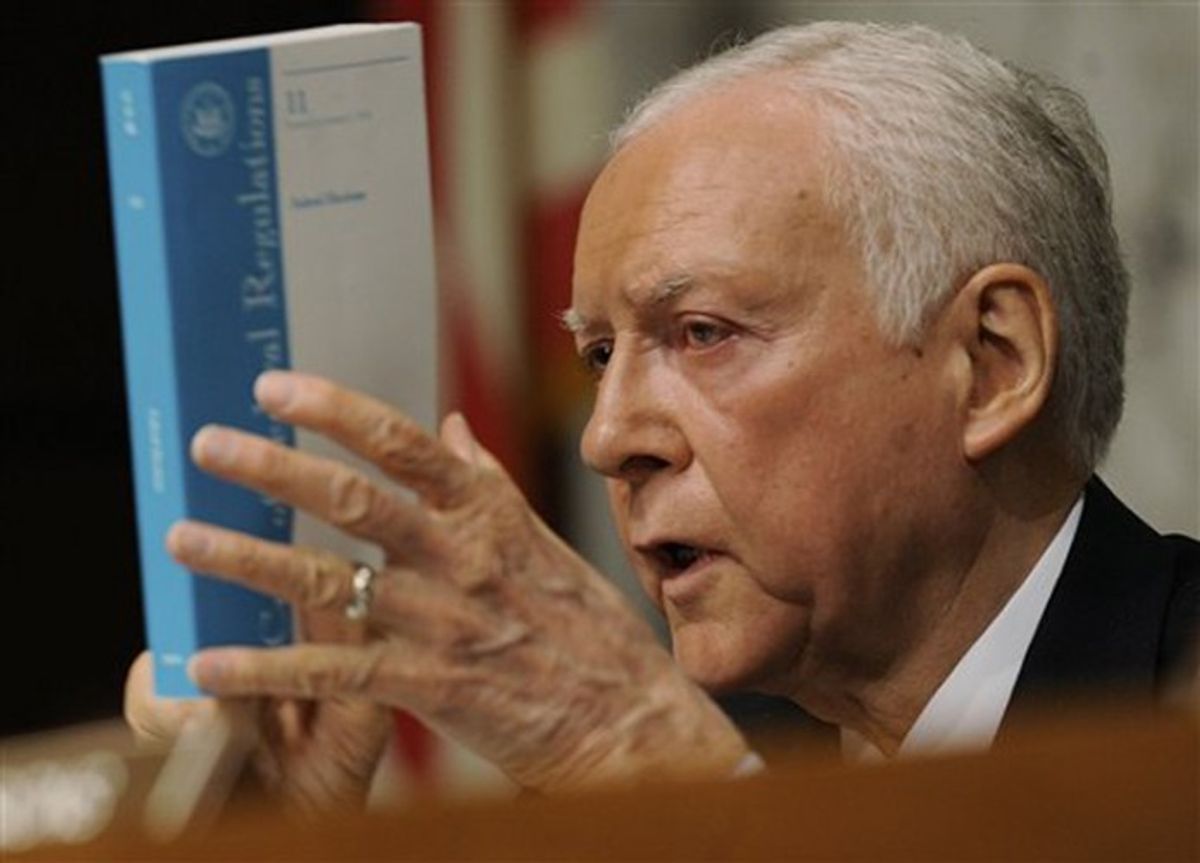In the wake of Monday's Senate Judiciary Committee hearing, during which Republican senators attacked Elena Kagan for admiring Thurgood Marshall, Orrin Hatch was asked by a Utah newspaper whether he would have voted to confirm Marshall, the court's first black justice, had he been in the Senate back in 1967.
"Well, it's hard to say," Hatch replied.
That's a rather stunning statement when you consider the dynamics of Marshall's 1967 confirmation. The occasion was certainly historic, but the vote was hardly close: He sailed through on a 69-11 tally. And that small sliver of opposition had everything to do with race -- and, more specifically, with lingering white Southern resentment of the court's 1954 school desegregation ruling (in which Marshall, as the NAACP's chief counsel, had played a leading role).
Here's a quick look at the 11 white southerners who voted against Marshall in 1967. Most of them were signatories of the notorious "Southern Manifesto," the 1956 document drafted by Strom Thurmond and Richard Russell that blasted the Brown v. Board of Education decision as a "clear abuse of judicial power."
* Spessard Holland (Florida): Signed the Southern Manifesto and pushed for Brown to be overturned.
* James Eastland (Mississippi): Infamously suggested to the LBJ that the disappearance of young civil rights activists in Mississippi in 1964 was a hoax and "a publicity stunt." The activists, of course, had been murdered by white supremacists.
* Allen Ellender (Louisiana): Once led a 27-hour filibuster of legislation that would have banned lynching.
* Sam Ervin (North Carolina): A "kinder, gentler" bigot, who won praise from some media outlets in the '60s for at least not using ugly words when describing black people -- even as he voted against virtually every piece of civil rights legislation.
* J. Lister Hill (Alabama): Another "moderate" who nonetheless signed the manifesto and voted against civil rights.
* Herman Talmadge (Georgia): As Georgia's governor, he decreed after the '54 Brown decision that "blood will run in the streets of Atlanta".
* John Sparkman (Alabama): Here's how Time summarized Sparkman's civil rights "problem" in 1965: "Not that John Sparkman is an integrationist -- far from it. Over the years he has voted against more than 100 civil rights bills. But to diehard segregationists, he has never sounded as though he really meant it."
* Ernest Hollings (South Carolina): He did oversee the integration of Clemson University as South Carolina's governor, but, facing a Senate re-election campaign in 1968, he voted against Marshall.
* Russell Long (Louisiana): Another Southern Manifesto signatory
* Robert Byrd (West Virginia): He's being remembered as a lion of the Senate this week, but not because of this period of his career.
* Strom Thurmond (South Carolina): What else needs to be said?
And yet, Orrin Hatch finds it "hard to say" which side he would have been on in this debate.



Shares